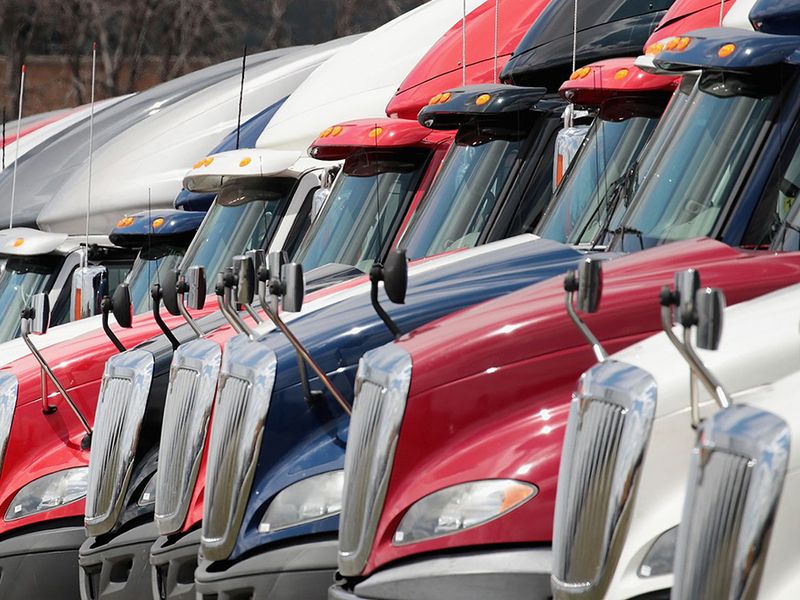
Volkswagen Group’s proposed $3.7 billion bid to acquire the assets of Navistar International could eventually have interesting implications for SUV and pickup fans — as well as dealers.
The International brand didn’t always just make semitrucks, school buses other large industrial work vehicles. It was an SUV pioneer that had the misfortune of exiting the consumer market just before utility vehicle sales exploded in the early 1980s.
The International Harvester Scout, manufactured from 1961 to 1980, was a two-door, soft-top SUV that rivaled the Jeep Wrangler and its spiritual ancestors, the Land Rover Series I and Series II, (precursor to the Defender) and the original soft-top, two-door 1966-75 Ford Bronco. The International Harvester Travelall, built from 1953 to 1975, was a big, beefy, high-riding, four-door, V-8, four-wheel-drive SUV designed for off-road family excursions long before that was a cool pursuit.
And International Harvester brand pickups were sold from 1907 to 1975.
Volkswagen already has a lineup of utility vehicles, but let’s be honest: They are not exactly flying off dealer lots and putting up sales numbers that are at the top of the charts in their segments. Volkswagen just isn’t a brand one thinks of when it comes to seriously capable off-road vehicles.
And VW doesn’t even try to pitch its Touareg, Tiguan and Atlas as such. This is where International Harvester-branded vehicles designed specifically for off-road adventures could fill a Grand Canyon-sized chasm in Volkswagen’s lineup.
Though International has been out of the SUV market for 40 years, it isn’t dead — at least to some consumers. Just like the Broncos and Defenders of days past, International has a rabid following among classic SUV fans.
While it seems unlikely that any VW-branded SUV could ever really compete in sales volume or prestige with Jaguar Land Rover’s Range Rover and other megabuck, off-road luxury utility vehicles, a reimagined upmarket International Travelall, loaded with VW’s technology, just might.
And, as my colleague Larry Vellequette points out, while Volkswagen Group has just one body-on-frame consumer vehicle in its global portfolio — the aged Amarok compact pickup, soon to be replaced by a rebadged Ford Ranger outside North America — it does have flexible platforms that would allow for the Scout to be resurrected. For example, a battery-powered Scout might be possible with VW’s flexible MEB electric vehicle architecture.
Alternatively, the automaking behemoth could adapt an Audi or Porsche platform to build a rear-wheel-drive-based, combustion-powered unibody design as a quick way to relaunch International to consumers. Ironically, that would make VW an International harvester — but that’s a tractor for another field, quips Larry.
Right now, Volkswagen’s check for the rest of Navistar International’s shares hasn’t been cashed. There are regulatory requirements still to settle. But VW’s relationship with Ford Motor Co. will see a pickup in VW showrooms in 2022. That truck might have a better shot at high-volume success if it wore an International Harvester badge.